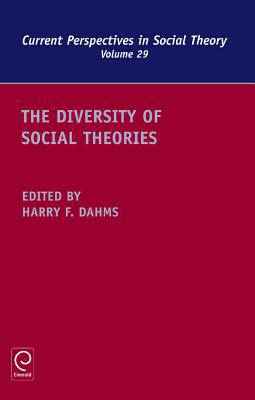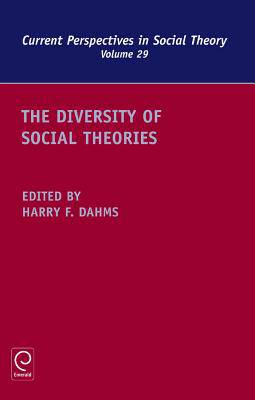
- Afhalen na 1 uur in een winkel met voorraad
- Gratis thuislevering in België vanaf € 30
- Ruim aanbod met 7 miljoen producten
- Afhalen na 1 uur in een winkel met voorraad
- Gratis thuislevering in België vanaf € 30
- Ruim aanbod met 7 miljoen producten
Zoeken
The Diversity of Social Theories
€ 281,95
+ 563 punten
Omschrijving
Since the time when Talcott Parsons pursued the project of one overarching "general theory of society", the landscape of social theory has vastly changed, and the pluralism and multidimensionality increased tremendously. Today, with so many different approaches in and to social theory, and multiple ways of defining and describing their relationship to and relevance for the social sciences, there has been a growing danger of diversity and pluralism tipping into fragmentation, making the prospect of social scientists and sociologists being able to communicate with the expectation of reaching some kind of understanding, ever less likely. This volume presents alternative trajectories for how to take steps toward achieving a theoretically informed understanding of the present analytical and practical challenges (in terms of social, sociological, and critical theory), and looks beyond pluralism and fragmentation to the kind of roles social theorists may be playing in the future. These essays revisit the issue of common agenda (or lack thereof) in social theory and provide critical overviews by specialists working in social theory, sociological theory, and critical theory.
Specificaties
Betrokkenen
- Uitgeverij:
Inhoud
- Aantal bladzijden:
- 240
- Taal:
- Engels
- Reeks:
- Reeksnummer:
- nr. 29
Eigenschappen
- Productcode (EAN):
- 9780857248213
- Verschijningsdatum:
- 7/10/2011
- Uitvoering:
- Hardcover
- Formaat:
- Ongenaaid / garenloos gebonden
- Afmetingen:
- 152 mm x 231 mm
- Gewicht:
- 476 g

Alleen bij Standaard Boekhandel
+ 563 punten op je klantenkaart van Standaard Boekhandel
Beoordelingen
We publiceren alleen reviews die voldoen aan de voorwaarden voor reviews. Bekijk onze voorwaarden voor reviews.










